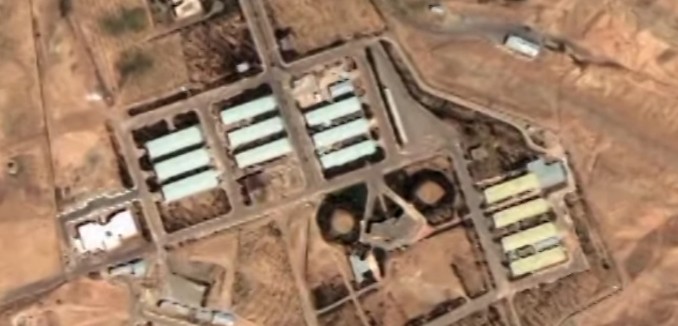The European Union issued a “cautionary” statement to Iran, saying the Islamic Republic must account for all of its past nuclear work if there is to be a comprehensive nuclear deal, the Associated Press (AP) reported today.
It was obtained by The Associated Press ahead of its delivery at a meeting of the UN’s International Atomic Energy Agency that opens Monday. …
The EU statement says getting to the bottom of the allegations “will be essential” to a nuclear deal.
Iran also would have to accept limits on its present nuclear activities.
Iran was required by the terms of the November 2013 Joint Plan of Action (.pdf) “to facilitate resolution of past and present issues of concern.” Iran has failed to explain all of its past nuclear research, which has prompted Yukiya Amano, the director general of the International Atomic Energy Agency, to say repeatedly that his agency cannot confirm that, “all nuclear material in Iran is in peaceful activities.”
Omri Ceren, The Israel Project’s managing director for press and strategy, last year explained why knowing the full scope of Iran’s past nuclear research is essential to making any nuclear deal with Iran “verifiable.”
At stake are international concerns over the so-called possible military dimensions (PMDs) of the Iranian nuclear program, the central significance of which has sometimes been underplayed by voices within the foreign policy community. While the P5+1 is charged with negotiating over Iran’s uranium work, its plutonium work, and its ballistic missile work – all of which the Iranians are obligated by half a dozen United Nations Security Council (UNSC) resolutions to roll back – the IAEA seeks to establish the scope of Iran’s overall atomic program, including in those three more specific areas.
The mandate stretches beyond full-blown weaponization work, and into military involvement in uranium mining, centrifuge construction, and so on. Full Iranian disclosure is considered a minimum to establishing a robust verification regime: The IAEA can’t verify that Iran has met its obligations to limit uranium work, for instance, unless it knows the full scope of the uranium work that’s being done. PMD-related transparency is seen as not just another issue – say, one that Iran could refuse to trade away by making concessions in other areas – but as a prerequisite to verifying Iranian compliance across all issues.
The Israel Project publishes The Tower.
[Photo: JewishNewsOne / YouTube ]




